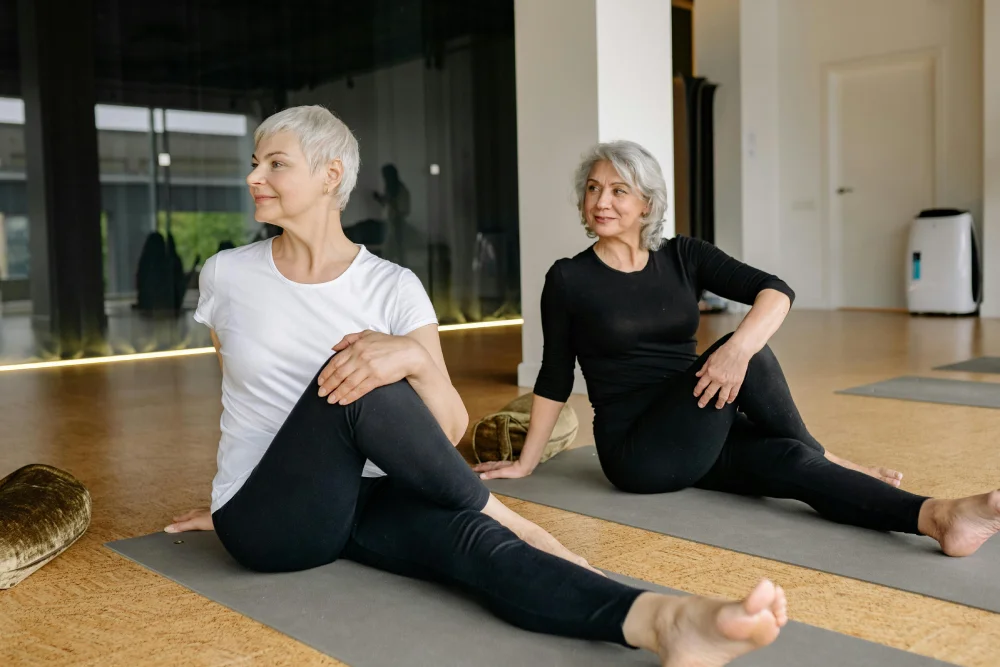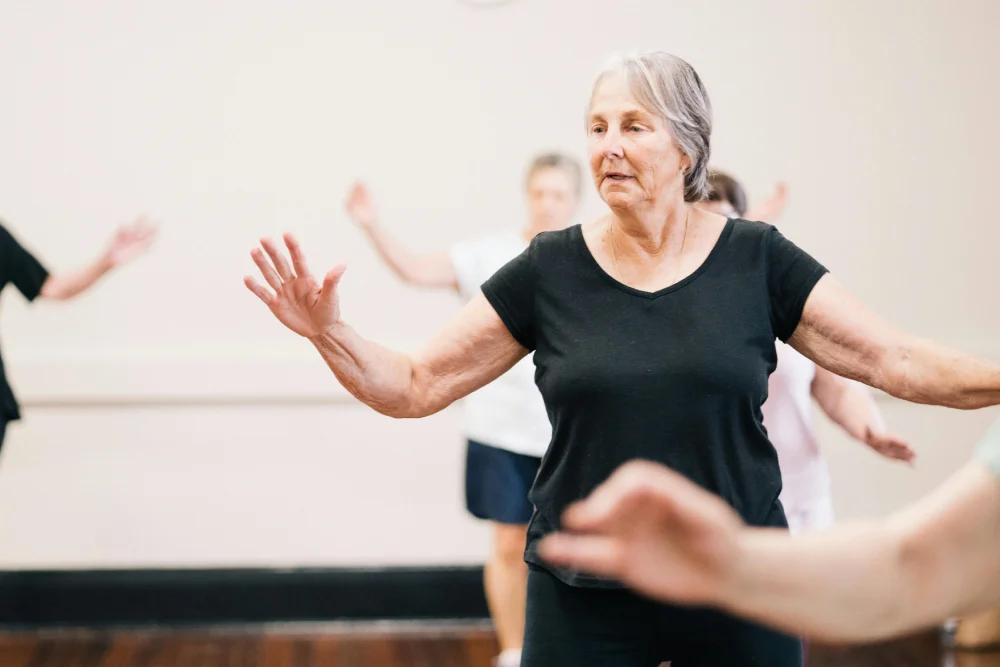Health matters at every stage of life. Research shows that women spend, on average, more of their lives in poor health compared to men.
For many women, later life is about staying active, feeling connected, and having the confidence to do what they love. Yet, too often, older women’s health is discussed narrowly, when it’s really about the whole picture: physical, emotional, and social wellbeing working together.
In this article, we shine a light on key health considerations for women in later life, explore how emotional and social factors play a role, and share simple ways to feel strong, independent, and supported every day.
Are you or your loved one looking for compassionate, gender aware care? Reach out to our team at Reedsfield Care today for personalised support designed to help your loved one live their best life.

Women’s health issues and later life
Women’s health issues don’t disappear with age. Often, women face new concerns that may even be overlooked or dismissed. Here, we’ll go over two of the most common conditions women face and how these may affect their later lives.
Menopause
Menopause is a natural part of aging that occurs when a person has gone 12 consecutive months without experiencing a menstrual period. On average, this process begins at age 52.
Premenopause is what occurs when the ovaries begin to produce less estrogen. This may last for several months or even years. This is where women experience symptoms such as hot flashes, difficulty sleeping, headaches, joint pain and more.
All of this can combine to affect older women’s day-to-day life, their mental health, and overall well-being. Many may struggle to reach out for support or lack the compassionate care they deserve.
Endometriosis
Endometriosis is estimated to affect 10% of women worldwide. That’s almost 200 million women, living with a chronic condition that causes pain from when they begin menstruating through menopause.
Unfortunately, there is no known cause, and for many women, the average time to diagnosis is between 4 and 12 years. Because of the severe pain experienced, women’s quality of life may significantly decline, especially as they age.
Many experience fatigue, depression, anxiety and even social isolation. All impacts that are likely to worsen without care and age.
Emotional and social impacts on well-being
Along with health issues, ageing women also face emotional and social challenges that may affect their well-being. Recognising these challenges is the first step to overcoming them.
Body image
Many women feel pressured to appear a certain way to engage in society and be valued. But as we age, our bodies begin to change and may no longer fit this ideal image.
In a survey conducted by the Mental Health Foundation, one in five adults over 55 felt anxious or depressed about their bodies. Women who face body image issues are also less likely to engage in society and report depressive symptoms.
These feelings can seriously limit how people live their lives, negatively affecting their well-being.
Self-confidence
Self-confidence may also suffer as women age. Not only does their body image change, but age may also affect what they can and can’t do. Some women may begin to struggle with movement or functioning without support.
This may affect their self-confidence, leading them to isolate further and avoid activities they enjoy.
Independence
Finally, body image, functionality and self-confidence may all combine to cut into older women’s independence significantly. They may not feel or be capable of acting on their own.
But these issues do not have to affect their independence. Women should be supported to act independently and engage in fulfilling activities without feeling limited.
The importance of gender aware care
It’s important to acknowledge the struggles women face as they age. Whether you are living with one of these conditions or seeing someone struggle with these issues, gender aware and compassionate care can help.
A care worker needs to understand where you are coming from, your experiences, struggles, and goals. All of which may be informed by your gender. This awareness allows care workers to offer more empathetic communication, respectful care, and emotional support.
At Reedsfield Care, we believe every woman deserves care that understands her story. Our holistic approach helps older women stay active, connected, and in control of their well-being.
Practical wellbeing tips to help you make the most of your day
While a supportive care worker can do a lot to help, sometimes we need a more personal pick-me-up. Here are a few practical tips you may incorporate into your daily or weekly routine to rebuild confidence, strength and independence.
Gentle exercise
Gentle exercise, like yoga, going for a stroll or a swim, may help you feel more capable and confident. Exercise also helps to strengthen the muscles and has been known to improve mental and emotional well-being.
Nutrition
While junk food can be tasty, nutritious food can help ensure we have the energy we need to get through the day. Consider incorporating healthy snacks into your or your loved one’s daily routine.
Community groups
Connection is crucial, especially as women age. If you or a loved one has been struggling with staying connected to friends and family, consider spending time in community groups. It’s a great way to make new friends, no matter how old you are.

Speak out about your health
Women of all ages may struggle to reach out for the support they need. On average, women spend more years in poor health than men do, often because of a lack of resources, sexism and medical misogyny.
This is why it’s so important for women to speak out and have open and honest conversations about their experiences. There is a stigma around health issues, one that is often worse for women.
By conversing openly, not only do women of any age receive better care, but they also make it easier for other women to seek support as well.
Women’s health is a lifelong journey, one that deserves understanding, patience, and care. At Reedsfield Care, our team provides home care that feels personal, respectful, and dependable.
From helping with mobility and daily routines to offering emotional comfort and companionship, we’re here to make every day a little easier and brighter for older people.

